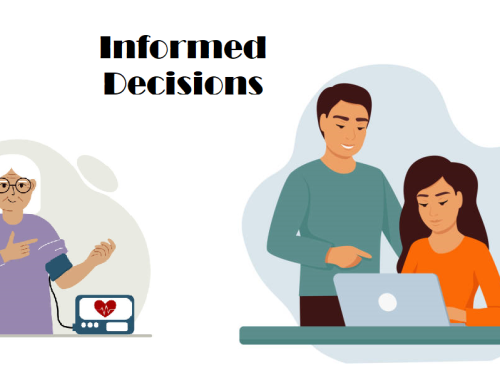
Understanding Open Enrollment
The health marketplace (Obamacare) provides an opportunity to get health insurance every year during annual open enrollment. The marketplace is intended for everyone under 65 who does not otherwise already have health coverage through an employer, or through Medicaid.
What kind of coverage should you buy?
While most people are not required to have coverage, you may need coverage if you have a growing family and expect to use a lot of healthcare and wellness services, or you may have a pre-existing condition that requires more extensive care and medications. Or, on the other hand, you may be in great health and don’t generally use lot of healthcare services throughout the year. However, if you qualify for a subsidy and can afford a plan on the Markeplace, it doesn’t hurt.
Here are major advantages of obtaining health insurance through the Marketplace under the Affordable Care Act:
- You may qualify for a subsidy that will make your health insurance more affordable. Most individuals qualify for some assistance.
- Plans include free preventative care and wellness benefits that help you stay healthy and rich essential benefits that help you get well.
- You can keep your children on your plan until age 26.
- You are guaranteed acceptance, regardless of health history or preexisting conditions.
- You can’t be charged more in premium based on health status or gender.
When can you enroll?
During the annual open enrollment, which in most states, runs from November 1st to December 15th, to be covered January 1st. You can still enroll up until January 15, but your coverage will not start until February 1. Some states allow enrollment through January 31, check with your state for specific enrollment dates.
Where do you enroll?
- For those states that participate in the Federal Marketplace Exchange, login or create an account at the Marketplace www.Healthcare.gov and start your application.
Special Enrollment
If you missed open enrollment, you could qualify for Special Open Enrollment which is anytime outside of open enrollment. You may qualify for special enrollment under these qualifying circumstances:
- change in legal marital status
- a change in the number of dependents
- a change in place of residence and the current carrier is not available
- significant cost or coverage change
- a change in coverage of a spouse or dependent
- a COBRA qualifying event
- legal judgments, decrees and orders
- entitlement to Medicare or Medicaid
Is health coverage still mandated? Do you have to buy health insurance?
For those states who participate in the Federal Exchange, and for some who even have their own Exchange, you will NOT pay a fine or penalty if you are not covered. The individual mandate that was initially part of the Affordable Care Act has been eliminated by Congress. However, some states have established their own individual mandates, so you still may be subject to your specific state tax penalty, if any.
Why get covered?
Don’t let medical bills wipe you out should you or a family member suffer an expected illness or accident. Statistics show that over 65% of personal bankruptcies are caused by medical bills. If you do not qualify for a subsidy or can not afford a plan on the Marketplace, there are non-ACA alternatives such as Short-Term Health Insurance and other supplemental health that will cost you a lot less than an unsubsidized major medical plan and can protect your finances should you become ill. However, keep in mind some of these plans have limitations and in some cases, do not cover certain and/or preexisting conditions.
Preparing for Open Enrollment
When it is time to buy a plan or renew your current plan, you’ll need to do some calculating to determine your needs. Review your co-pays, deductibles and premiums, against your actual healthcare expenses over the past year and your estimated healthcare expenses for 2024. Consider any new or ongoing health concerns, or any other health services you may need, such as dental work or orthodontia for you or your family. Having this information ahead of time will help you be ready to select the plan that will save you the most on your healthcare.
Before you fill out your new health insurance application, gather the following information.
- Social Security Numbers for everyone covered
- Household Income (Tax Information, if applicable for you and dependents)
Tips for selecting health insurance.
As you compare monthly premiums, you should also compare copayments, deductibles, and coinsurance.
Copayments – the fixed dollar amount you must pay for a doctor visit or other covered service. Accordingly, for those individuals who visit the doctor frequently, a plan with a low co-pay may be a good choice.
Deductibles – a deductible is the amount you must pay annually before certain healthcare services will be covered. Accordingly, a high deductible, low premium plan is often a good choice for those individuals who are generally healthy.
Coinsurance – after your deductible is met, you will still pay for a portion of your medical services, referred to as coinsurance. For example, many policies pay between 60% to 80% of your healthcare costs, while you cover the remaining 20% to 40%.
You have an annual out-of-pocket maximum that includes copayments, deductibles and coinsurance. Once you reach your out-of-pocket maximum, the insurance company pays 100% of your healthcare costs.
Consider the plan’s healthcare provider network. Whether an HMO or PPO, all health plans have an approved provider network. If you use healthcare service providers outside of the network, there is a good chance those charges won’t be covered by your policy.
Additional options for healthcare coverage.
Non-ACA plans are a smart, affordable solution for those who do not feel comfortable going without coverage, especially with the sky-rocketing costs of medical care today.
The following non-ACA health solutions are designed to protect you and your family’s physical health and financial wellness, without breaking the bank.
Test Your Knowledge on Health Insurance
Take our Health Insurance Quiz with the latest 2023 Questions and Answers!




